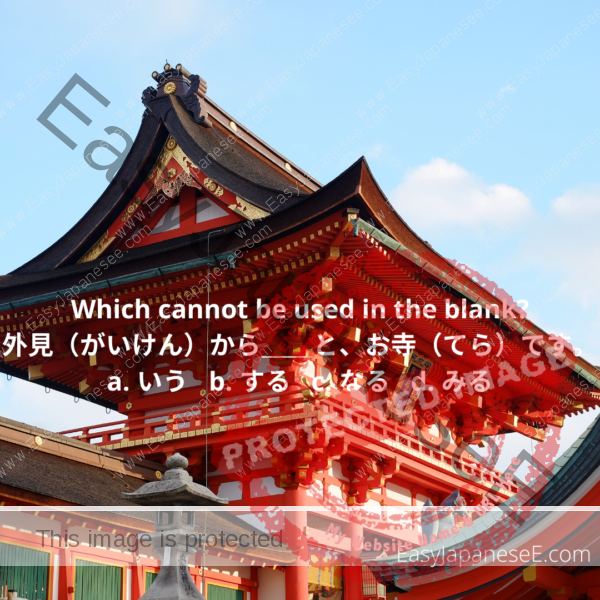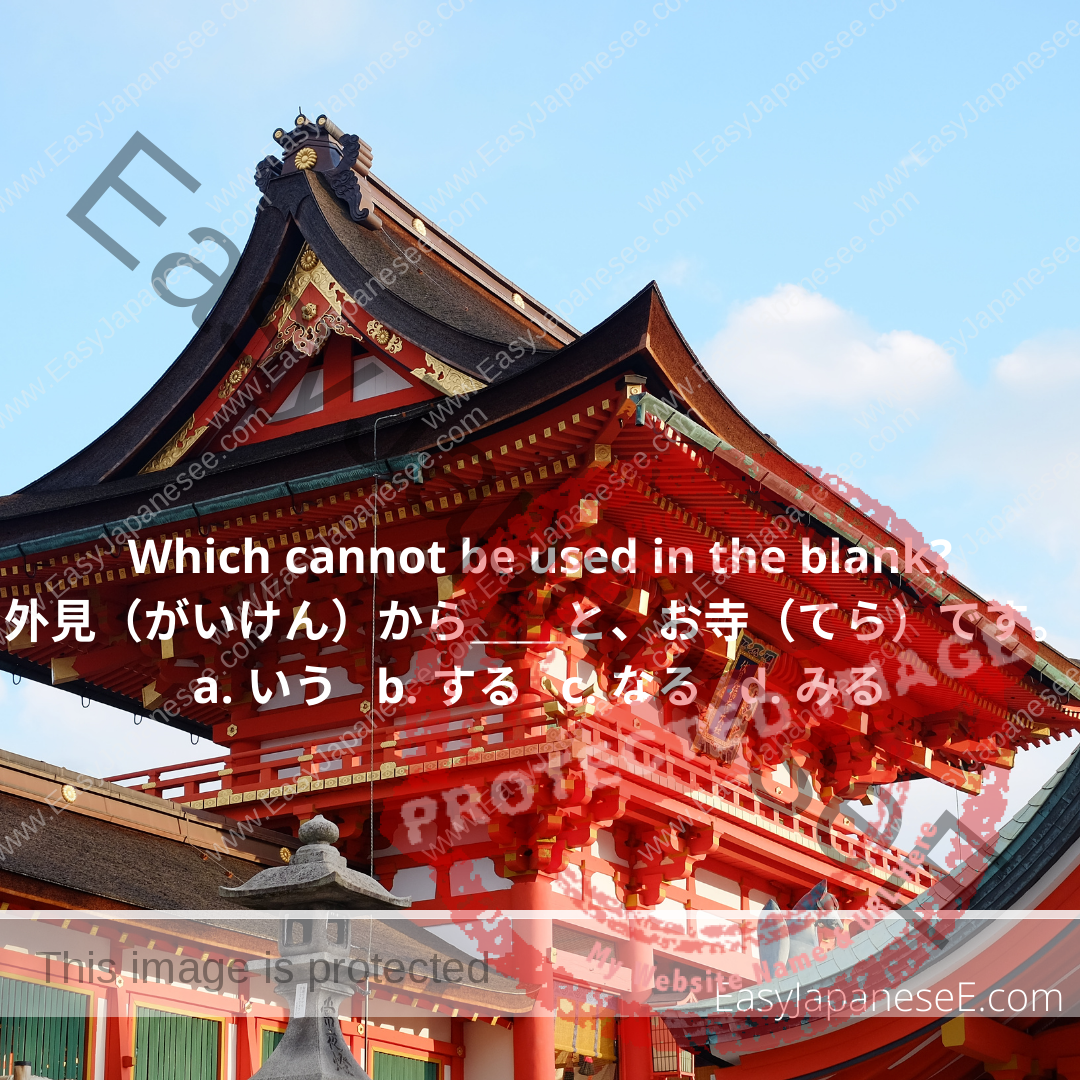
Today’s Question
Which cannot be used in the blank?
外見(がいけん)から__と、お寺(てら)です。
a. いう b. する c. なる d. みる
Today’s Grammar Point: ~からすると…、~からいうと…、~からみると…
All these patterns are used to state the viewpoint when an opinion or judgement is expressed. In all of these patterns, ~ (the word before から) is the perspective or the viewpoint which leads to the statement in the latter (…) part, which is usually a judgement or an opinion. So all of them can be translated as:
- in terms of…
- from the point of view of…
- judging from…
If what goes in A is an objective fact, I think it is OK to say these 3 are interchangeable.
The most versatile expression among the three would be ~からすると which is best translated as “judging from…,” “considering …” or “by the look of….”
If you use 言う or 見る after から, the nature of the verb gives some restrictions on what can be used before から。
言う is “to say,” so you should not use a third party person or organisation before から言うと as you cannot speak for them.
見る is “to look at,” so ~から見ると literally means “If viewed from the viewpoint of ~” so if you use a word with the meaning of “viewpoint” like 意見 (opinion) or 考え (idea) in front of から見ると, it does sound odd as the words are doubling up.
All these expressions have several variations below.
Connection
[noun] + からすると/からすれば
[noun] + からいうと/からいえば/からいうなら/からいって
[noun] + からみると/からみれば/からみるなら/からみて
Examples
Judging from the test result, it seems John is good at Mathematics.
テストの結果からすると、ジョンさんは数学が得意なようだ。
テストの結果から言うと、ジョンさんは数学が得意なようだ。
テストの結果から見ると、ジョンさんは数学が得意なようだ。Based on the symptoms, it is unlikely that he has pneumonia from coronavirus.
症状からすれば、コロナウイルスによる新型肺炎ではないと思います。
症状から言うなら、コロナウイルスによる新型肺炎ではないと思います。
症状から見て、コロナウイルスによる新型肺炎ではないと思います。Considering the evidences,John is innocent.
証拠からすると、ジョンさんは無実です。
証拠から言えば、ジョンさんは無実です。
証拠から見るなら、ジョンさんは無実です。
Examples of sentences in which から言うと cannot be used
From John’s point of view, natto is not a food.
ジョンさんからすると、納豆は食べ物ではないそうです。
ジョンさんから見ると、納豆は食べ物ではないそうです。ジョンさんから言うと、納豆は食べ物ではないそうです。
⇒ジョンさんが言うには、納豆は食べ物ではないそうです。
According to John, natto is not a food.From the company’s perspective, John is a precious asset.
会社からすると、ジョンさんは貴重な存在だ。
会社から見ると、ジョンさんは貴重な存在だ。会社から言うと、ジョンさんは貴重な存在だ。
⇒会社の視点から言うと、ジョンさんは貴重な存在だ。
Examples of から見ると sounding awkward
From my point of view, natto is not a food.
私の視点からすると、納豆は食べ物ではありません。
私の視点から言うと、納豆は食べ物ではありません。
私の視点から見ると、納豆は食べ物ではありません。(?) – awkward
⇒私から見ると、納豆は食べ物ではありません。
Answer to Today’s Question: c and d
The sentence should mean: “Judging from the outside appearance, it looks like a (Buddhism) temple.”
c. ~からなる means “to consist of ~ and that does not suit the context at all.
d. ~からみる and 外見 together sound a bit awkward as the meaning of “look” is doubling up.


One Reply to “~からすると…、~からいうと…、~からみると…”